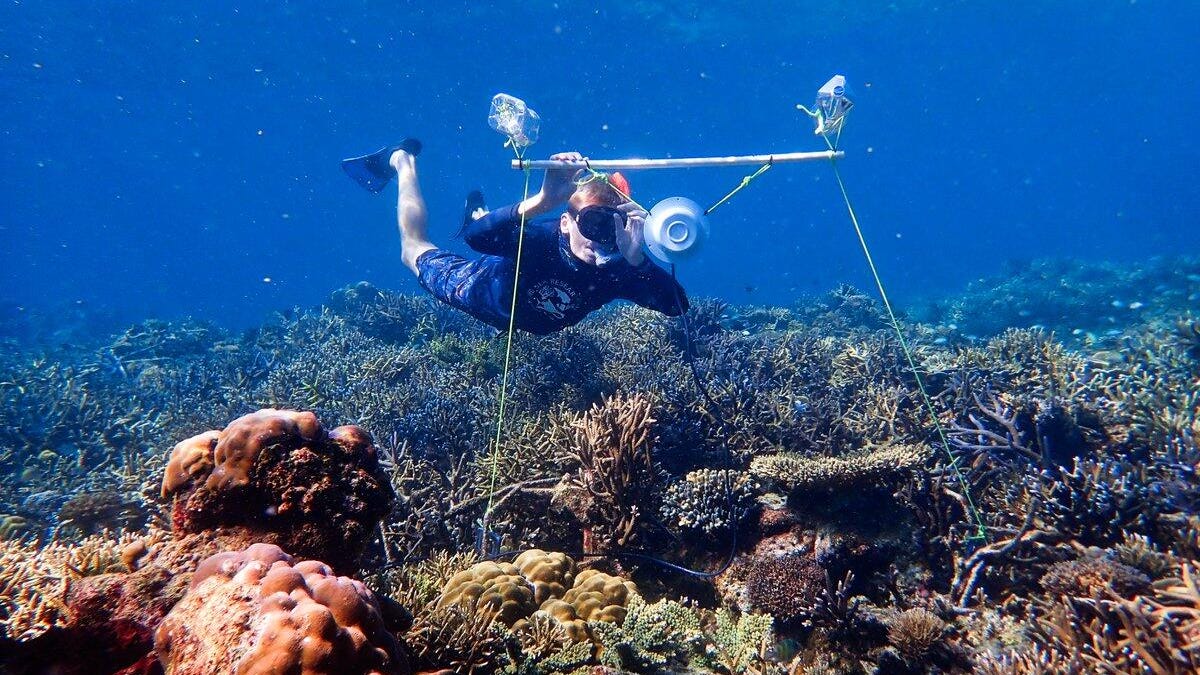Underwater loudspeakers could help restore damaged coral reefs
The sweet sounds of a healthy coral reef are enough to convince young fish to move into the neighborhood.
Australia's Great Barrier Reef is suffering from the impacts of warming water temperatures, overfishing and pollution. Scientists may have a discovered a new tool to help with coral reef restoration efforts. It involves playing the dulcet sounds of nature under the waves.
Scientists know the quietness of damaged coral reefs is keeping fish away. Those fish are a key part of the reef ecosystem. A team of researchers led by marine biologists at the University of Exeter in the UK set up underwater loudspeakers to play recorded sounds of healthy reefs in an effort to lure young fish to come hang out in areas where the coral had degraded.
The experiment went swimmingly.
"The study found that broadcasting healthy reef sound doubled the total number of fish arriving onto experimental patches of reef habitat, as well as increasing the number of species present by 50%," the University of Exeter said in a release on Friday.
"Healthy coral reefs are remarkably noisy places -- the crackle of snapping shrimp and the whoops and grunts of fish combine to form a dazzling biological soundscape," said University of Exeter marine biologist Steve Simpson, co-author of a paper published Friday in the journal Nature Communications. "Juvenile fish home in on these sounds when they're looking for a place to settle."
The six-week loudspeaker experiment gives scientists one more possible approach in the ongoing battle to protect and restore reefs around the world. Other researchers are investigating everything from 3D-printed coral to lab-grown hybrid coral that might be able to withstand the changing underwater climate.
The acoustic experiment could potentially be combined with habitat restoration and conservation efforts to help jumpstart recovery, but it will take a broad effort to save the Great Barrier Reef. At least that effort now has a soundtrack.


